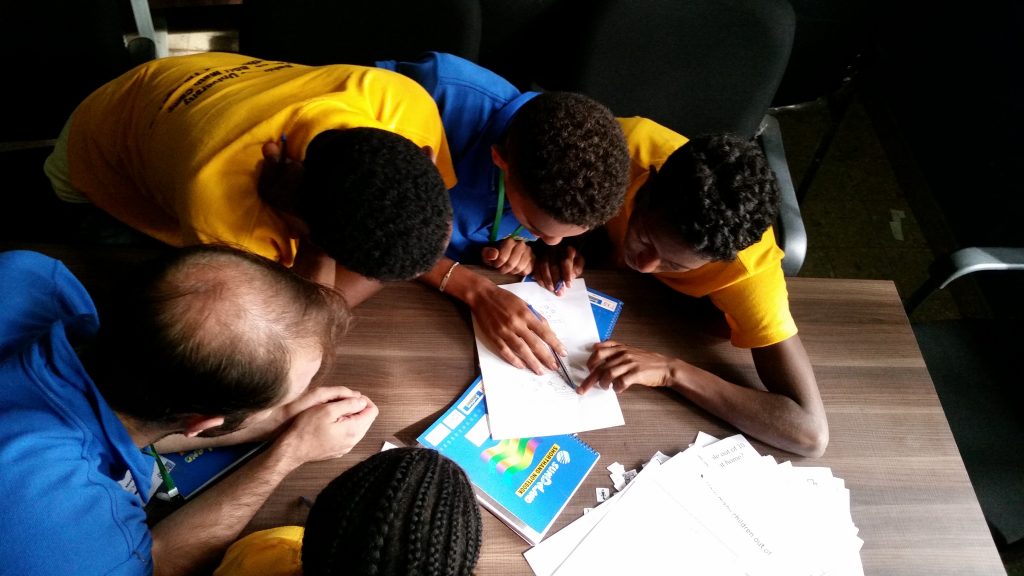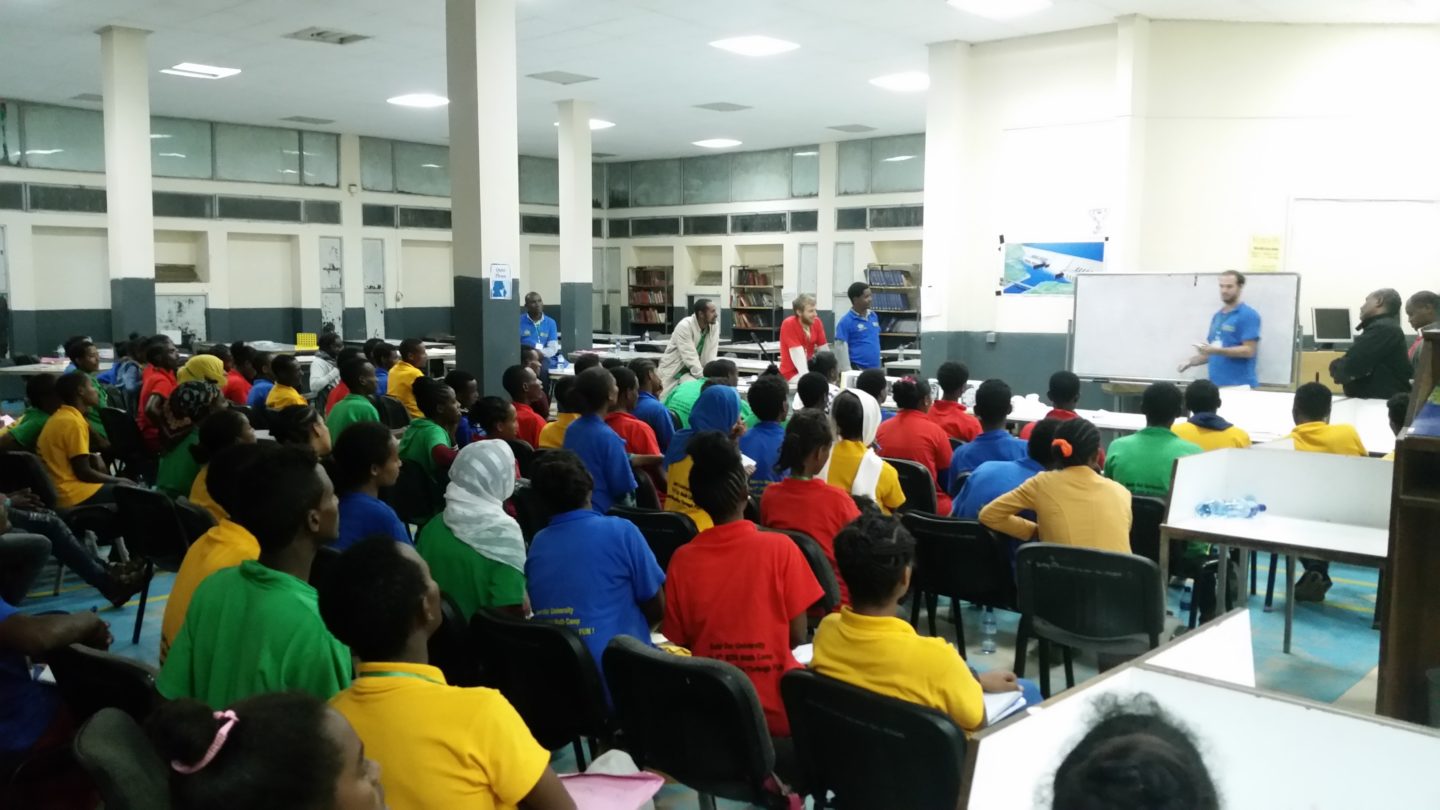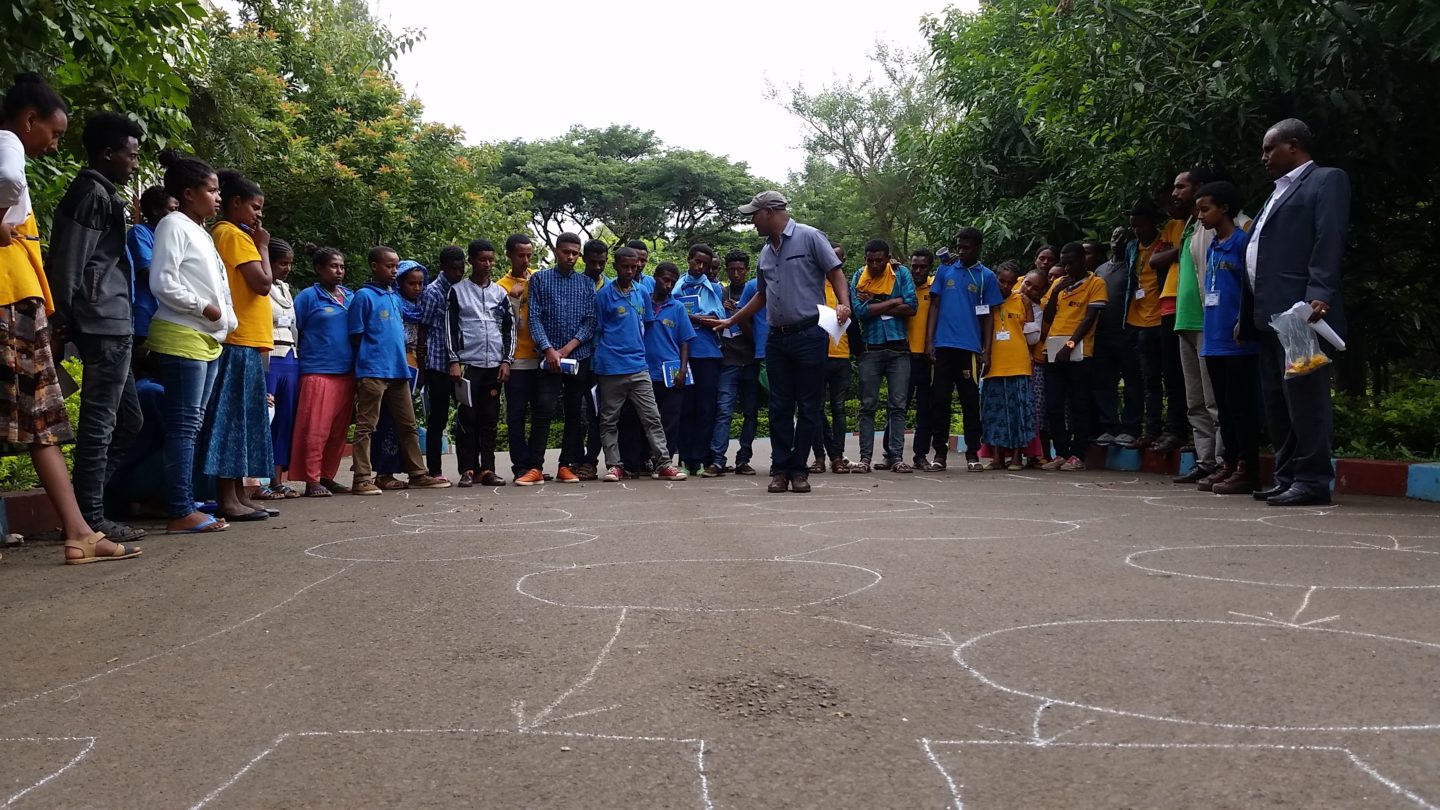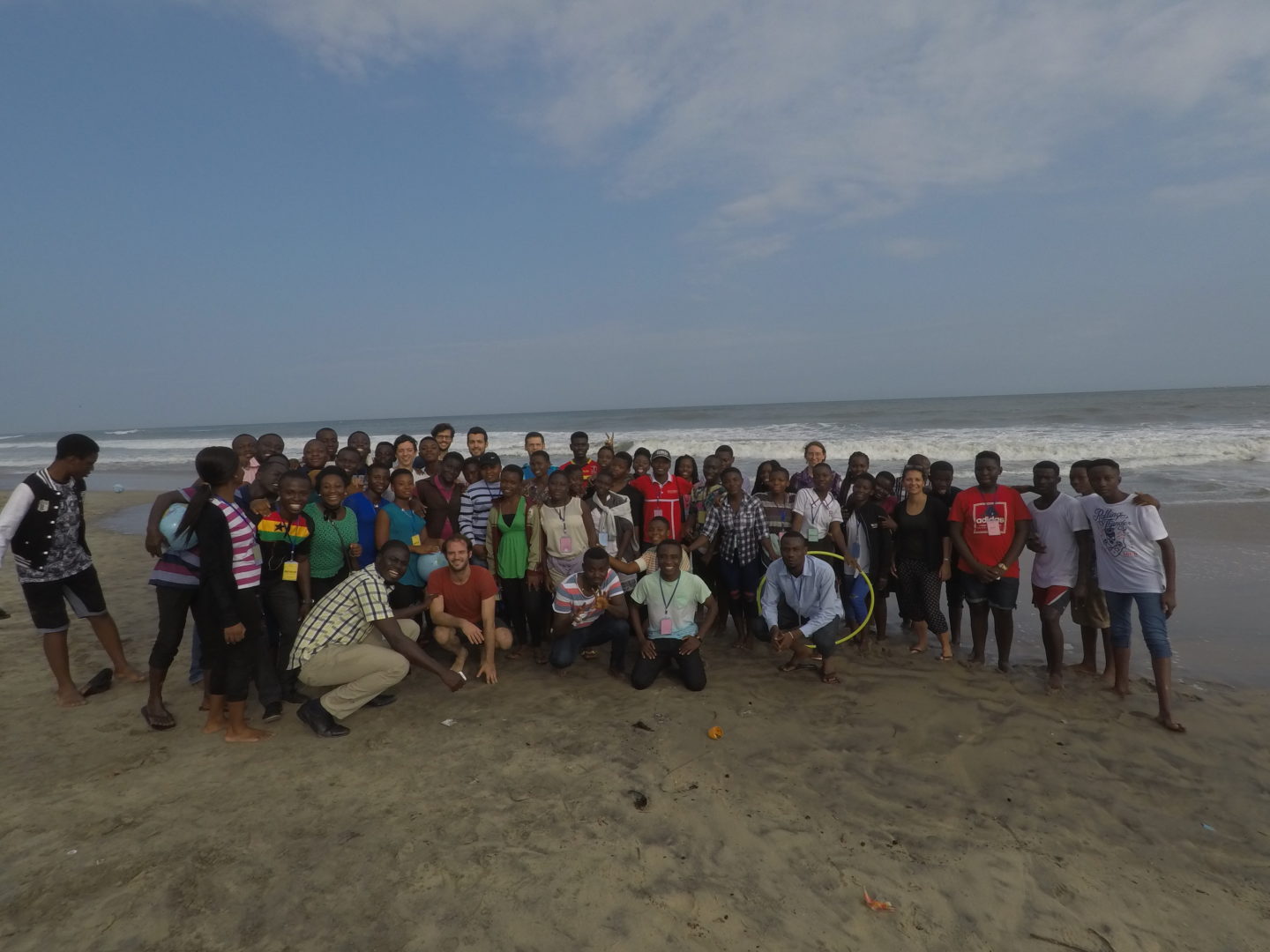October 31, 2017
Beyond classroom and curriculum: a summer of math and community in Africa
PhD students and postdocs at IST Austria volunteer at mathematics camps in Africa | Mathematicians and computer scientists develop activities to intrigue and challenge young students
What did you do this summer? A group of young scientists at the Institute of Science and Technology Austria (IST Austria) has an unusual answer to this classic question. Over the last few years, four doctoral students and one postdoc spent several weeks of their summer vacations developing programs for, and then teaching at, mathematics camps in various African countries.
The mathematics camps are coordinated by local African organizations, such as the NGO “African Maths Initiative” (AMI), and additionally by the UK-based charity “Supporting Africa Maths Initiatives” (SAMI). These organizations are working to build a culture of mathematics across Africa and to strengthen the mathematical community there. SAMI in particular provides support, expertise, and funding for the local initiatives.
One aspect of these programs is the mathematics camps, which are designed to expose high-school students and teachers to new mathematical ideas, and inspire them outside the classroom. For the participants, the camps last one week, and consist of daily games, puzzles, and activities that start at 8am and last until 9pm. IST Austria scientists have worked at various camps since 2014, in different countries including Kenya, Ghana, Ethiopia, and Tanzania, as well as at fundraiser camps in the United Kingdom.
“For a volunteer, the camp program lasts two weeks,” explains Zuzana Masárová, a PhD student in mathematics at IST Austria. “The first week, we work with local partners—university students and lecturers, for instance—and other international volunteers to brainstorm ideas and develop and plan lessons. The second week, we teach!” This year, IST Austria scientists came up with activities in the areas of geometry, programming, cryptography, combinatorics, statistics, modeling, and a variety of others. Over the course of the week, camp participants formed a human computer, developed their own encryption schemes (and tried to break those of the others!), experimented with selfishness and society in a version of the “prisoner’s dilemma”, programmed a robot, found new ways to compute area and enumerate paths, and a great deal more. During some of the camps, local volunteers active in mathematics also gave talks on their research, and discussed possible careers in mathematics. “At the end of our camp, we had a treasure hunt,” says Iordan Ganev, a mathematics postdoc at IST Austria. “The students had to use the skills they had learned to figure out clues and find the next station.” Once the week concluded, the local teachers involved with the program were encouraged to share the activities, and implement them in their own classrooms.
Flexibility, as well as creativity, is important for the success of the week, as the camps can present some unexpected hurdles. “The power went out during a planned computer session,” recalls Georg Osang, a mathematics PhD student in the Edelsbrunner group at IST Austria, “so—on the spot—we came up with an outdoor activity based on the Fibonacci sequence.”
Connecting with students, especially in the face of language barriers, can also present a challenge. “The start of the camp was tough,” says Michal Rolinek, a 2017 graduate of IST Austria. “The kids were so shy and quiet, and it took a lot of smiling, kindness, and joyful craziness from our side to help change that. By the end, though, they spontaneously started singing and dancing on the bus!”
And it is not only the camp participants who change and develop during the week; one of the goals of the camp is that everyone learns, including the local and international volunteers. Georg Osang uses his experience as an example: “Each time I learn—in part through my and others’ mistakes—more about what works and what doesn’t to make sessions interactive and exciting.”
Iordan Ganev, who participated this year for the first time, is enthusiastic about his experience as well—and already thinking about helping with next year’s camps. “If you are excited about math and education, you should volunteer with this program. They are always looking for good people!” Michal Rolinek adds: “And as the initiatives grow, there will be other kinds of volunteer opportunities as well. I am not yet sure exactly how I will stay involved, but I want to keep ‘math in Africa’ in my life.”
Iordan Ganev is a postdoc working with Tamás Hausel. He spent two weeks of summer 2017 working at a camp at the African Institute of Mathematical Sciences in Biriwa, Ghana.
Zuzana Masárová is a fourth-year PhD student in the Edelsbrunner and Wagner groups. She helped organize camps at Bahir Dar University in Ethiopia in 2014, and at the Manor House Agricultural Centre near Kitale in Kenya in 2016.
Georg Osang is a third-year student working towards his doctorate under the supervision of Herbert Edelsbrunner, and has helped with camps in Ghana in 2014, Ethiopia in 2015 and 2017, Tanzania in 2016, and London in 2017.
Josef Tkadlec is a computer science PhD student in his fourth year, working with Krishnendu Chatterjee. He volunteered at the mathematics camp at the Manor House Agricultural Centre near Kitale, Kenya in 2016.
Michal Rolinek is a 2017 graduate of IST Austria, where he performed his doctoral research under the guidance of Vladimir Kolmogorov. He now works part-time as a postdoc at the Max Planck Institute for Intelligent Systems in Tübingen, Germany, and part-time as a cryptographer for the San Francisco-based startup Wickr. Michal took part in two camps this summer—in Ghana and Ethiopia—as well as a camp in London earlier this year.
Links
African Maths Initiative: http://www.africanmathsinitiative.net/
Supporting Africa Maths Initiatives: https://samicharity.co.uk/
2017 Ghana Math Camp Video: https://www.youtube.com/watch?v=d_T4CuQUntU







